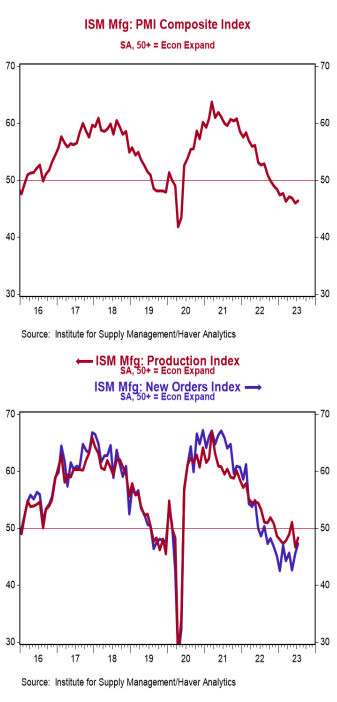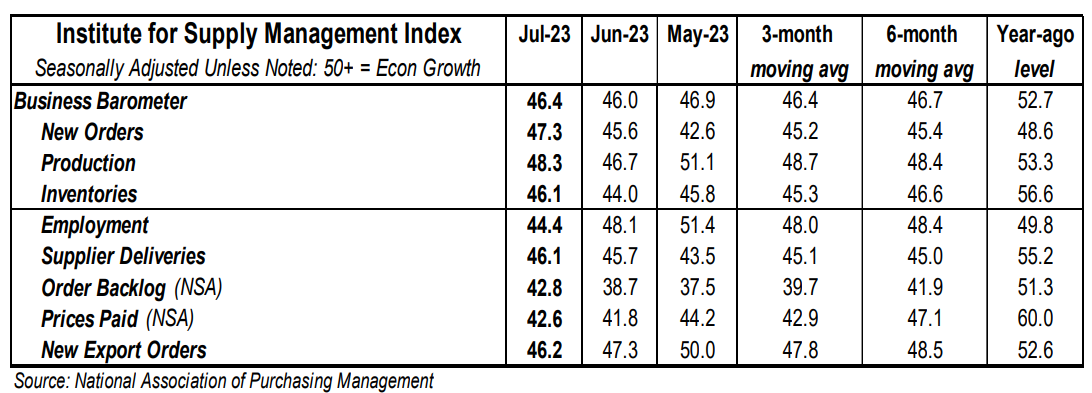- The ISM Manufacturing Index increased to 46.4 in July, lagging the consensus expected 46.9. (Levels higher than 50 signal expansion; levels below 50 signal contraction.)
- The major measures of activity were mostly higher in July. The new orders index increased to 47.3 from 45.6 in June, while the production index rose to 48.3 from 46.7. The supplier deliveries index rose to 46.1 from 45.7 in June and the employment index declined to 44.4 from 48.1.
- The prices paid index increased to 42.6 in July from 41.8 in June.
Implications:
Activity in the US factory sector contracted for the ninth month in a row in July, though at a slightly slower pace. Looking at the details, only two of eighteen industries reported growth in July. We continue to believe a recession is on the way and today’s report shows the goods sector of the economy is likely to lead the way. Survey respondents in July noted uncertainty about the US economy as well as slowing demand from customers. That said, while every major category of today’s report remained in contraction territory, most did increase from the month before. The two most forward-looking indices – new orders and production – rose to 47.3 and 48.3, respectively. Given that consumers have been shifting their preferences away from goods and back toward services it’s not surprising to see these measures remain below 50. A combination of less demand from consumers and built-up inventories at retailers means factory output is likely to remain sluggish. One consistent piece of good news that was also reflected in survey comments in July is that fewer new orders as well as improvements in supply chains have allowed factories to catch up on order backlogs. While that index did rise slightly in July, it remains near the lowest readings since the 2008 Financial Crisis. However, the slowdown in orders and reduction in backlogs has begun to affect the employment index, which fell for the second month in a row to 44.4 in July. Finally, on the inflation front, the prices index rose slightly to 42.6 in July. In other news this morning, construction spending increased 0.5% in June. The gain was driven by an increase in home building, which more than offset declines in power and healthcare projects





